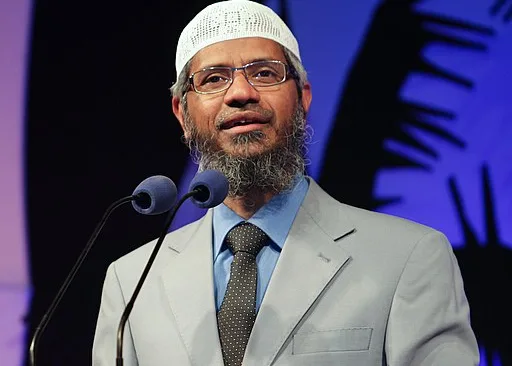The controversial preacher’s remarks spark online backlash as he navigates his visit to Pakistan
Zakir Naik, a polarising figure in the world of religious discourse, has found himself at the centre of attention once again. After arriving in Pakistan on October 1, he has launched a scathing attack on Pakistan International Airlines (PIA) for imposing extra baggage charges during his travel from Malaysia. Rather than waiving the fees, Naik claimed that PIA offered him a mere 50% discount, which he promptly rejected, stating that such a situation would not occur in India.
This statement comes amid Naik’s contentious history. He has been living in Malaysia since 2016, following an investigation by India’s National Investigation Agency (NIA) linked to the Dhaka terror attack. One of the attackers admitted to being influenced by Naik’s speeches, prompting Indian authorities to seek his extradition. However, Malaysia has not complied with this request.
During his stay in Pakistan, Naik met with Prime Minister Shehbaz Sharif, further entrenching his status within certain political circles. The meeting raised eyebrows given Naik’s controversial past and the legal battles he faces in India. The Pakistani government has largely welcomed Naik, which reflects a complex interplay of political and religious sentiments in the country.
Embed from Getty ImagesNaik’s comments regarding the baggage fees sparked a wave of online trolling. Many social media users took to various platforms to express their views, with some accusing him of hypocrisy. Critics pointed out that Naik’s rejection of a discount while travelling first class was emblematic of his disconnection from the realities faced by ordinary citizens.
“This is what happens when you think you are above everyone else,” one user tweeted, highlighting the irony of a wealthy individual complaining about a baggage charge. Another remarked, “Only in Pakistan can someone like Naik complain about 50% off. In India, he’d be in jail!” The backlash continued to grow, with many suggesting that Naik’s grievances were misplaced given his legal troubles back in India.
Naik has claimed that he is in Pakistan until October 28, during which he is expected to engage with his followers and deliver sermons. His presence in Pakistan raises questions about the nation’s handling of individuals with contentious backgrounds and the broader implications for its international relations, particularly with India.
As the controversy unfolds, Naik’s outspoken nature and the polarising views surrounding him continue to generate debate. His claims about PIA and the ensuing reactions serve as a reminder of the complexities that accompany figures like him, who occupy a space straddling religion, politics, and law.
In the backdrop of his visit, Naik’s continued influence on religious discourse in South Asia remains evident. However, the backlash he faces in social media reflects a shifting public sentiment that challenges his authority. The ongoing scrutiny surrounding his actions underscores the tension between freedom of expression and accountability, particularly in a region marked by diverse and often conflicting beliefs.
As Naik navigates his stay in Pakistan, the discourse around his persona is likely to evolve further. With public opinion divided, the path ahead for both him and the authorities that engage with him remains uncertain. This episode not only highlights the intricacies of Naik’s influence but also serves as a lens through which to view broader socio-political dynamics in South Asia.
